Earth
Sign up for our newsletter
We summarize the week's scientific breakthroughs every Thursday.
-
 Earth
EarthEarth’s oldest rocks may be at least 4.16 billion years old
If the new age of these Canadian rocks is solid, they would be the first and only ones known to have survived Earth’s earliest, tumultuous time.
-
 Animals
AnimalsU.S. seal populations have rebounded — and so have their conflicts with humans
Alix Morris’s new book, A Year with the Seals, explores humans’ complicated relationship with these controversial marine mammals.
-
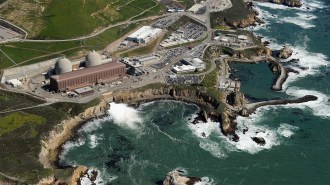 Science & Society
Science & SocietyIs nuclear energy good? A new book explores this complex question
Atomic Dreams explores nuclear energy's future in the U.S. through the history of Diablo Canyon, California's last operational nuclear power plant.
-
 Climate
ClimateThis paint ‘sweats’ to keep your house cool
This experimental paint reflects sunlight, emits heat and mimics sweating to cool buildings without air conditioning, even in the tropics.
-
 Earth
EarthClimate change is coming for your cheese
Adapting to climate change by replacing grass in cows' feed with corn affected the nutritional value and quality of cheese, French researchers found.
-
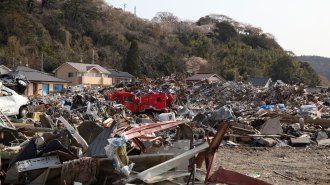 Earth
EarthSmall earthquakes can have a big impact on the movements of major faults
Small and far-off earthquakes can stifle the spread of large motions on some of the world’s biggest faults.
By Nikk Ogasa -
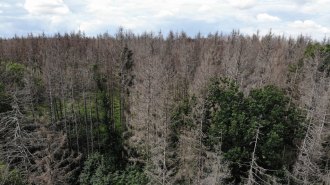 Plants
PlantsTrees ‘remember’ times of water abundance and scarcity
Spruce trees that experienced long-term droughts were more resistant to future ones, while pines acclimatized to wet periods were more vulnerable.
-
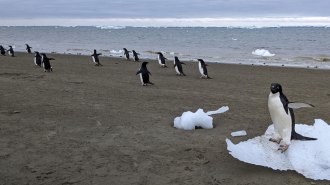 Climate
ClimatePenguin poop gives Antarctic cloud formation a boost
Penguin poop provides ammonia for cloud formation in coastal Antarctica, potentially helping to mitigate the impacts of climate change in the region.
-
 Earth
EarthGamma rays flared as this lightning bolt formed
Thunderstorms are known to generate gamma rays, the highest energy radiation on Earth. But pinning the burst to a specific bolt is new.
By Sid Perkins -
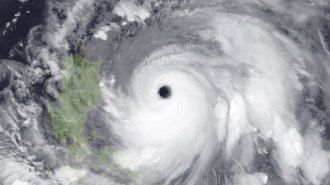 Artificial Intelligence
Artificial IntelligenceA new AI-based weather tool surpasses current forecasts
The AI tool used machine learning to outperform current weather simulations, offering faster, cheaper, more accurate forecasts.
-
 Oceans
OceansSeafloor amber may hold hints of a tsunami 115 million years ago
Oddly shaped deposits of tree resin point to massive waves that struck northern Japan roughly 115 million years ago and swept a forest into the sea.
-
 Animals
AnimalsThis tool-wielding assassin turns its prey’s defenses into a trap
This assassin bug's ability to use a tool — bees’ resin — could shed light on how the ability evolved in other animals.